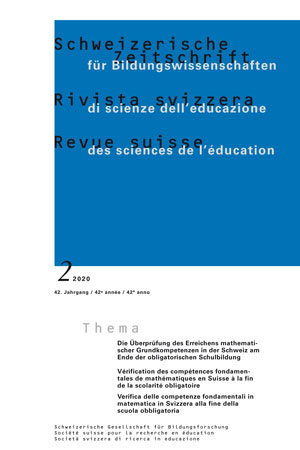Why do women so rarely become STEM professionals? The role of discrepancy between mathematics skills and self-concept
DOI:
https://doi.org/10.24452/sjer.42.2.6Keywords:
STEM, gender, mathematics skills, mathematical self-concept, occupational choiceAbstract
To counter the shortage of skilled workers in the fields of STEM, the federal government and the cantons try to arouse interest in science, technology, engineering, and mathematics at all levels of education. One of the aims is to counteract gender-specific differences in the choice of apprenticeships and fields of study. Against this backdrop, we use data from the “ÜGK 2016” to analyze how many young people at the end of compulsory schooling think that they will have a STEM profession at the age of 30. The results make clear that due to an underestimation of their own mathematical skills, young women are less likely than young men to imagine a career in the fields of STEM.
Downloads
Download data is not yet available.
Downloads
Published
2020-10-14
Issue
Section
Thematic contribution
How to Cite
Jann, B. and Hupka-Brunner, S. (2020) “Why do women so rarely become STEM professionals? The role of discrepancy between mathematics skills and self-concept”, Swiss Journal of Educational Research, 42(2), pp. 391–413. doi:10.24452/sjer.42.2.6.



